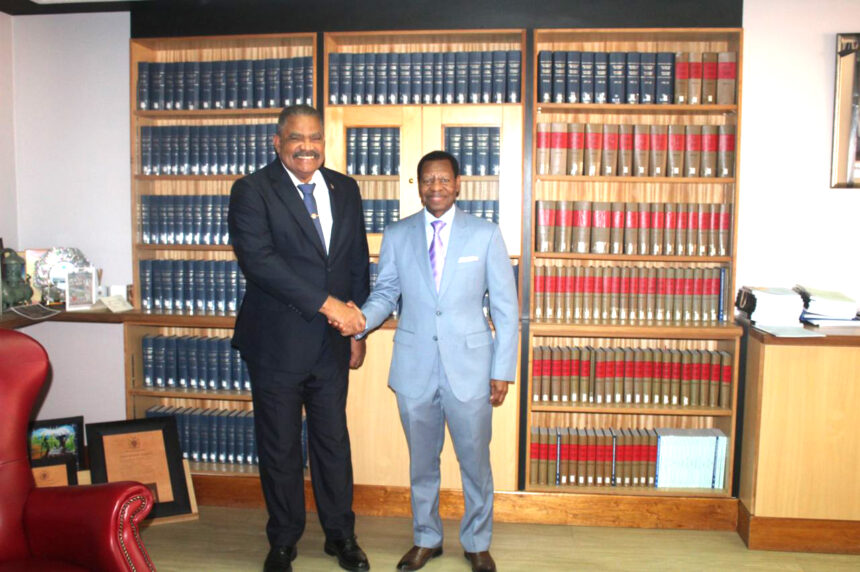Namibia and Cuba share a deep connection that goes beyond mere diplomacy, Chief Justice Peter Shivute has said.
He was speaking during an official visit by Rubén Remigio Ferro, president of Cuba’s supreme court, to the Namibian Supreme Court in Windhoek on Wednesday.
Justice Shivute said the two nations’ collaboration is rooted in the solidarity and sacrifices made by the Cuban people during Namibia’s long and difficult struggle for independence.
During those crucial years, Cuba stood firmly by Namibia’s side, offering support not only in words but through action, as many Cuban soldiers and professionals served in Namibia’s liberation movement, he stated.
“Their contribution is forever etched in our national history and to this day, we continue to cherish the bonds of friendship that were forged in those challenging times,” he said.
Shivute further noted that this enduring friendship has flourished not only within the Executive and Legislature but also in the Judicial sphere.
In 2016, a protocol of cooperation between the respective judiciaries was formalised, symbolising the importance of mutual learning and exchanging ideas.
The chief justice said the protocol reflects shared values and a mutual commitment to the rule of law and justice, as well as sharing of best practices and expertise between the judiciaries of Cuba and Namibia.
“Through this, we have sought to strengthen our respective legal systems,” Shivute said.
Meanwhile, Ferro indicated that Cuba has recently undergone significant legal reforms.
He explained that in just over three years, Cuba has renewed almost its entire legal framework, resulting in modern and robust legislation aligned with international standards and the most advanced global practices in law and the administration of justice.
Ferro’s visit was aimed at strengthening judicial ties and sharing best practices that will benefit both jurisdictions.
-Nampa



